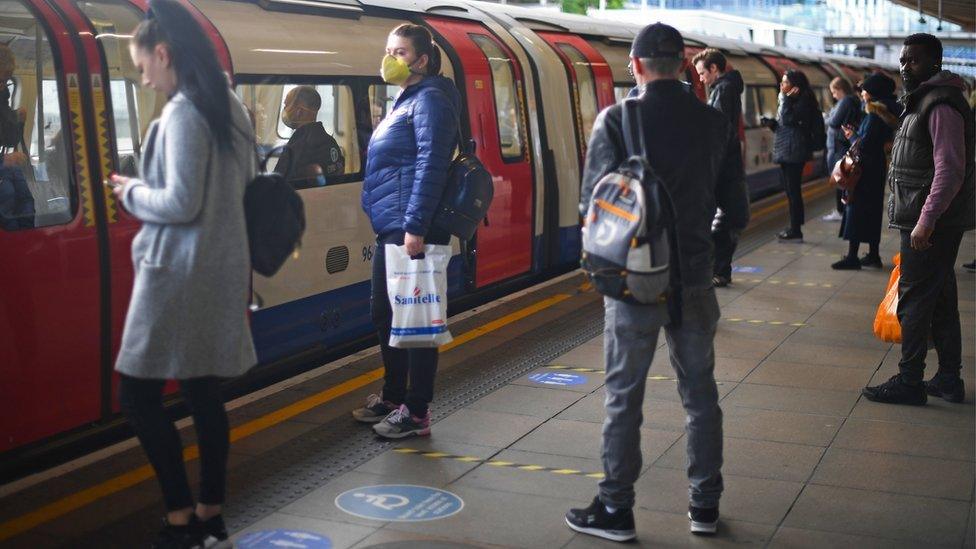Coronavirus: How will bowling alleys and casinos change after lockdown?
- Published
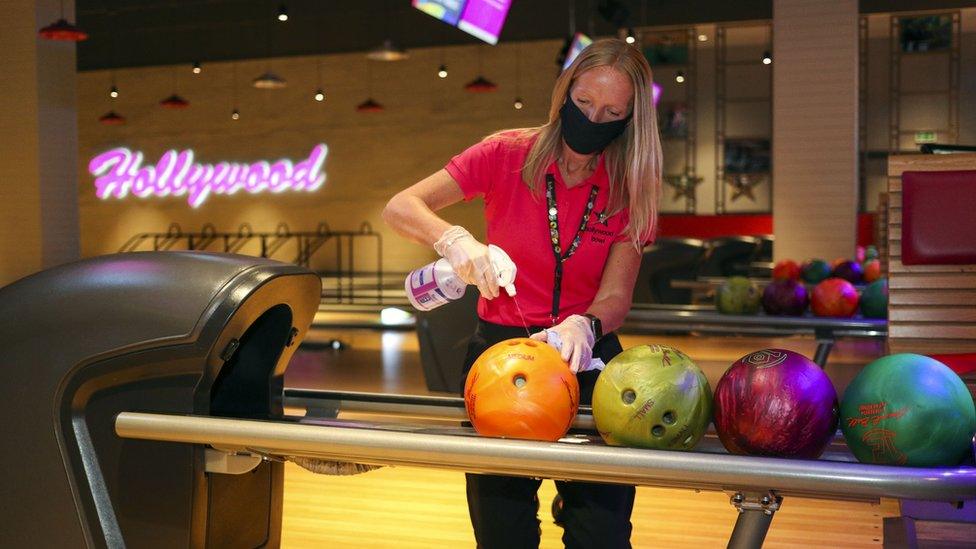
It's been 16 weeks since bowling alleys and casinos closed their doors, but on Friday Boris Johnson gave them the go-ahead to reopen from 1 August in England.
Customers have been itching to get back, businesses say. But the experience will look a little different to what we're used to.
Hollywood Bowl is preparing to reopen all 54 of its venues in two weeks' time, but it'll be out with the bowling shoes and in with the plastic gloves.
The vast majority of the company's 1,900 furloughed staff members will return to work as soon as the doors reopen, says chief financial officer, Laurence Keen - but only after they've had their temperature checked.
Like all firms reopening, they've had to make sure they're abiding by the government's Covid-secure guidelines, which involve grappling with dozens of safety questions specific to each business.
For instance, coronavirus is known to spread through contact with surfaces, which isn't ideal for a game which involves repeatedly touching bowling balls.
Staff at Hollywood Bowl will be cleaning bowling balls before and after each game, Laurence explains, with sanitiser on-hand for customers.
The clattering of pins might not as deafening as usual though, as every other lane will be closed to allow for social distancing. Players will also be capped at six per lane - as opposed to eight before the pandemic.
Staff will wear gloves, he says, and customers will be offered them too. So far, they've shelled out for 400,000 pairs of gloves, which Laurence expects will last "a good 12 to 16 weeks", depending on how many customers want them.
They're also hoping bowling shoes will become a thing of the past, as people will be encouraged to wear their own.
(If you're wondering what the point of bowling shoes were in the first place, they help you slide across the floor. "But nobody does that apart from the professionals," Laurence says.)
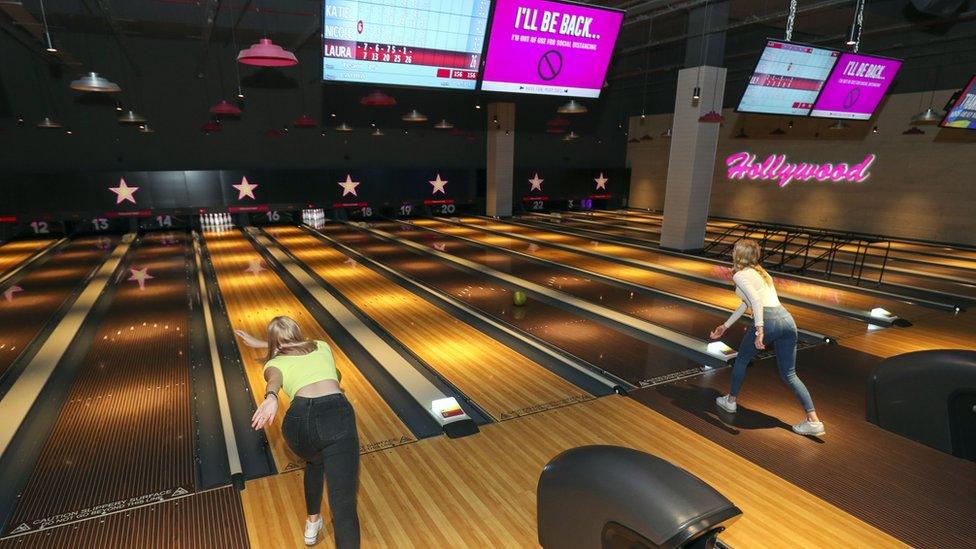
Lanes will look significantly emptier as every other one will be closed to allow for social distancing
Many changes may have been made, but will customers turn up to see them?
Laurence is feeling positive: "A lot of the areas that have been allowed to open previously have been more targeted towards the older generation, but actually our kids are desperate to do things outside the four walls of the house."
They may be hoping to welcome back families in droves, but with every other lane closed, the company is having to cut their potential customer numbers in half.
They aren't too worried though as they would usually only see 35% of lanes filled on weekdays before the pandemic, but they do expect to lose some custom on weekends.
At 50% revenue, the company will still be profitable, Laurence says, "albeit just".
'Personal gaming chips'
Meanwhile, Jonathon Swaine, the managing director of venues at Grosvenor Casinos, says he's been waiting - "patiently" - for the green light from the government for months.
The company is now getting ready to welcome back 4,500 employees, the vast majority of whom have been furloughed.
Maintaining social distancing has been one of the biggest problems for many firms - but Jonathon says that "isn't so much of a problem" for them.
"We're lucky with our casinos that, even with 50% capacity, generally our casinos are very spacious venues. We don't have the problems that pubs have."
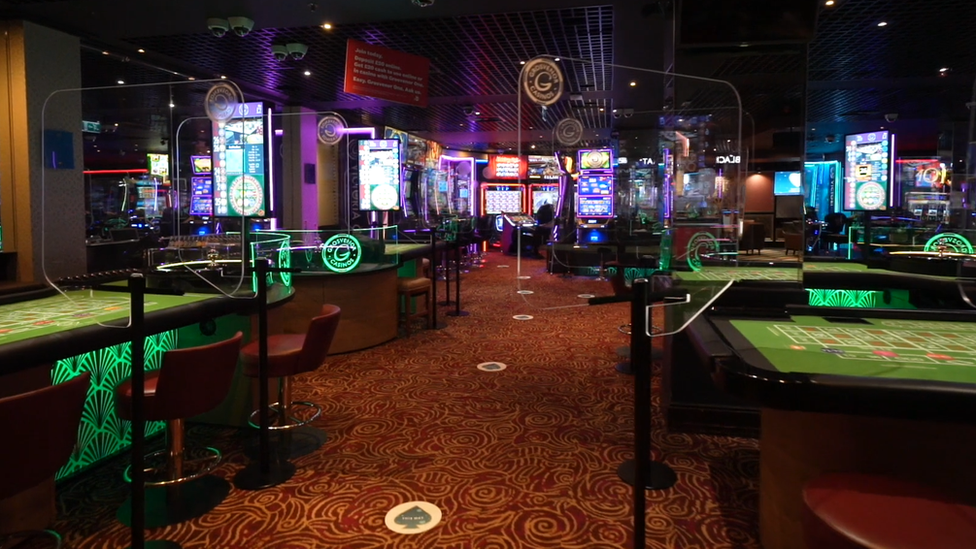
Floor markers will help players make their way round the building
And he's confident that their longer opening hours will help mitigate against the customer cap they're introducing in their 43 venues.
Players arriving at busier sites will face temperature checks as well as redesigned routes through the building to help keep people at a safe distance.
And inside the casino, plastic screens will separate people playing blackjack and American roulette, with dealers wearing visors.
Gaming chips present a similar problem to bowling balls, but Jonathon says all tokens will be sanitised before and after use, and customers will only play with their own chips.
Adapting in this way hasn't come cheap.
"The screens, the sanitiser, the additional measures that we've put in place have all been significant investments," Jonathon says. "But we clearly think it's the right thing to do to reassure our customers."
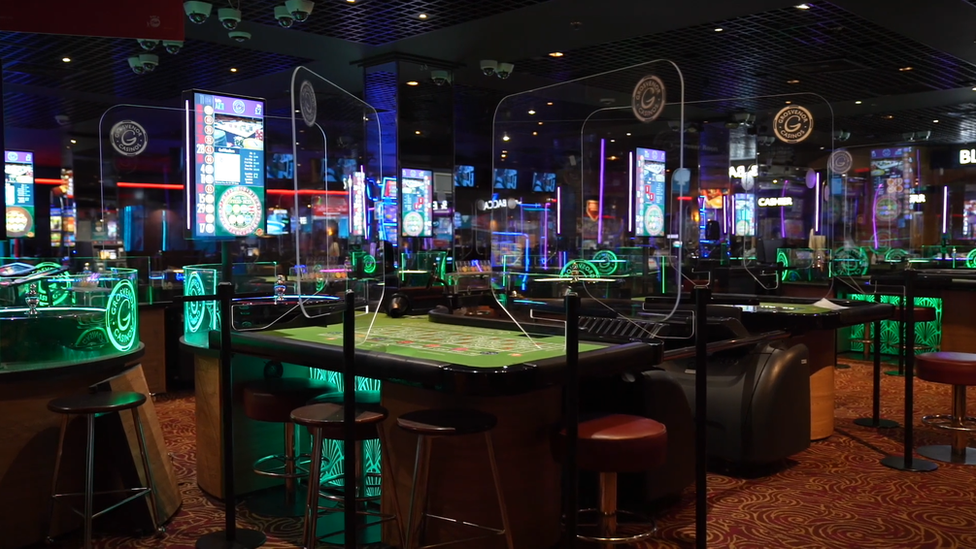
Plastic screens will become a regular sight at casinos in future
Reassurance has been "right at the top of the customers' needs" according to their research, so it's important for them to get that right.
But with some people still cautious, is he confident that reopening will be pay off?
"If we can bring as many people back as possible, and open as quickly and as safely as possible, we've got the best chance of a sustainable business," he says.
"We can't wait."
- Published17 July 2020
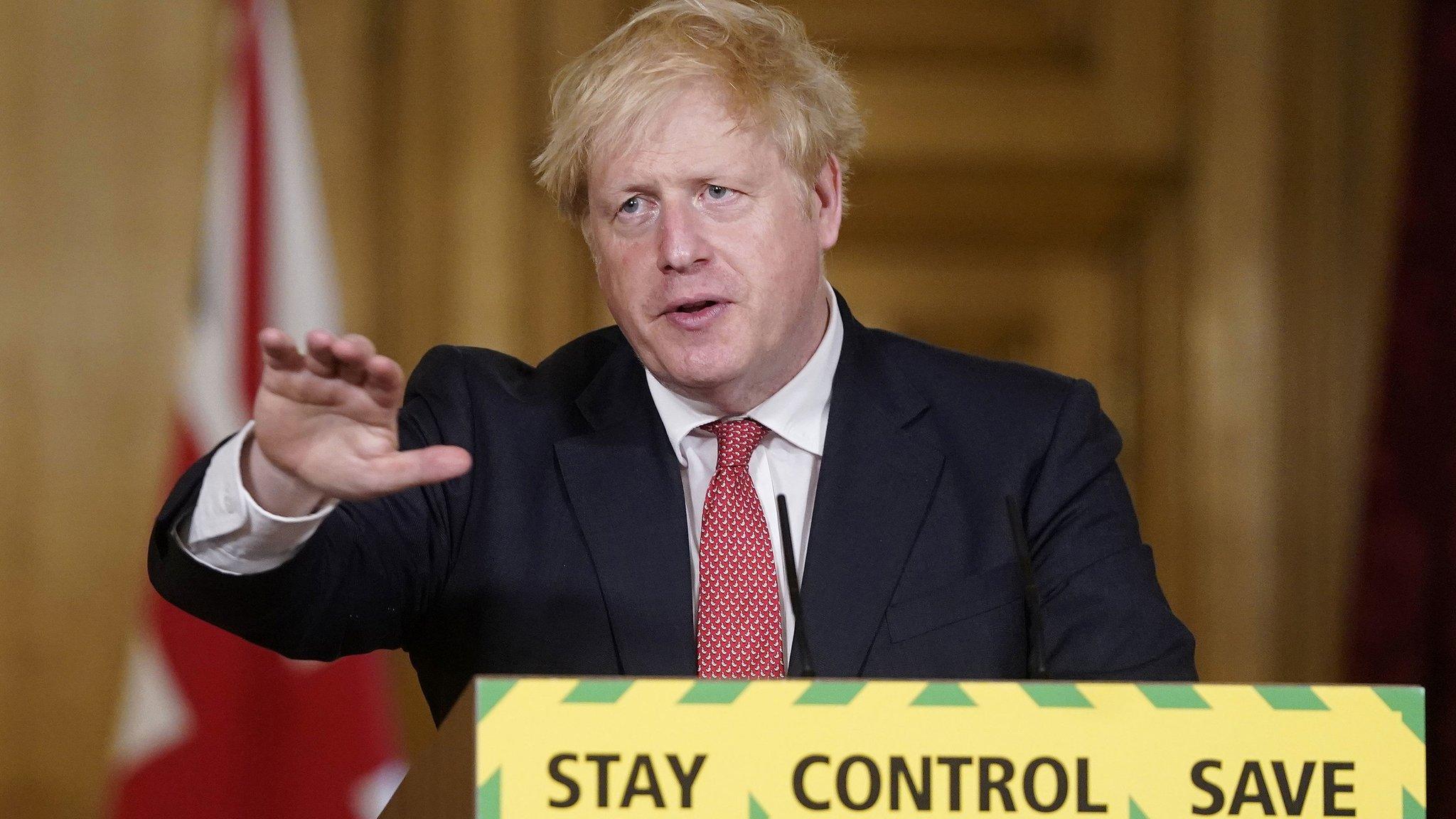
- Published17 July 2020
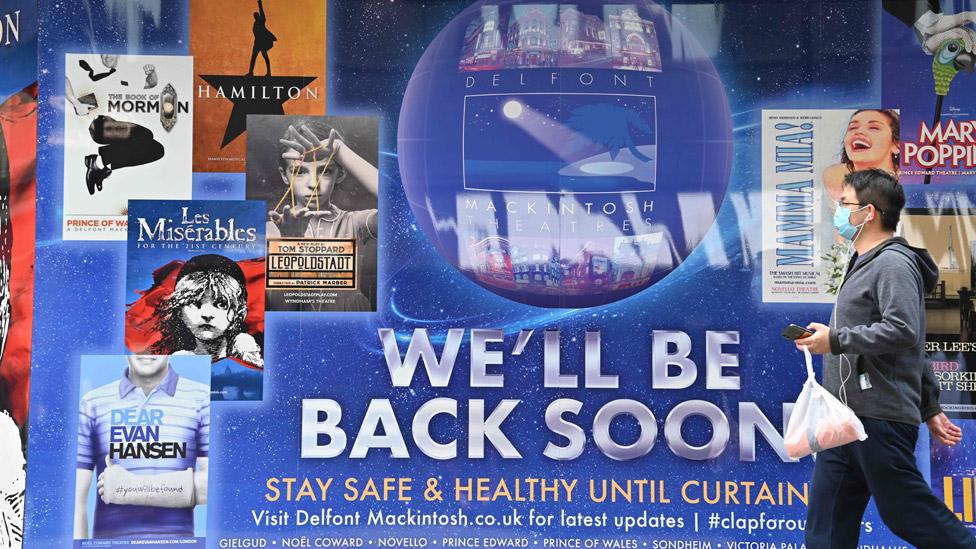
- Published17 July 2020
